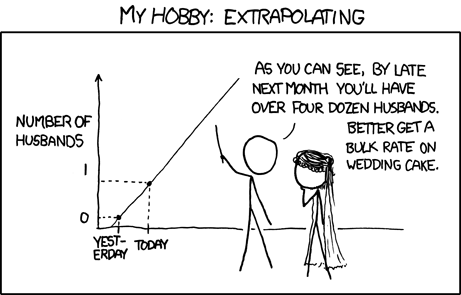ValiantThor wrote:
These numbers are taken from CDC data showing estimates of the number of children with ASD:
2018: 1 in 40 (CDC data is usually at least 2 years old; this is an estimate given by the Journal of Pediatrics, as reported by CNN)
2014: 1 in 68
2008: I in 88
2006: 1 in 110
2004: 1 in 125
2000: 1 in 150
1995: 1 in 1,000
Someone mentioned that I contradicted myself by saying that some of the influx in new diagnoses is due to more uniform diagnostic standards. This is simple to explain. It was not until 1993 that healthcare professionals even got themselves on the same page in defining the term Autism. It took another 2 decades for them to hash out the fine details, as exemplified by the term “Asperger’s” disappearing from the DSM in 2013. How can there be certainty in the numbers when there was not even an accepted standard for diagnosing Autism until just recently? I would list the year 2000 as an accepted starting point for having useable statistics to track the growth rate because of this phenomenon.
The prevalence of those diagnosed with Autism is rapidly accelerating. There is absolutely no evidence to suggest that this is going to stabilize at 1 in 35 to 1 in 40. If anything, the evidence suggests just the opposite. The data tells me that within 5 years it is going to be 1 in 20 children. Why do you think that this data is even being collected by the CDC? The government and healthcare world see this as an epidemic.
I, for one, do not see it an epidemic. I see a change coming to humanity. Think about how the “normal” people interact and behave: lying about their feelings, avoiding sensitive subjects that are annoyingly obvious, leaving important words unsaid, pretending to like things they do not, pretending that they are not feeling an emotion that they clearly are feeling, using language to hide, skirting crucial issues, attacking people who frighten them without ever realizing they are full of fear, and claiming to be rational when huge steamy clouds of emotion are pouring out of them. In my eyes, I see unevolved, inefficient, and almost maddening, neurotypical behavior. The way I see the world and interact with it quite often makes much more sense.
I do empathize for those that are higher up the Spectrum. In any evolutionary process you’ll find variants and degrees of change. It’s how nature finds the middle ground in adapting and thriving. I was just recently diagnosed and in reconstructing my past, I realized that I was considered almost non-verbal for my first 6 years in this body. I fully credit my mother for pulling me down into the high-functioning range. Had it not been for her, I would have been quite different today. My point is that in living through variant ranges of the Spectrum, I see that there is something special hidden in us “afflicted” with Autism. We are the forerunners to a better society.
I've read this before from someone using a different account.













